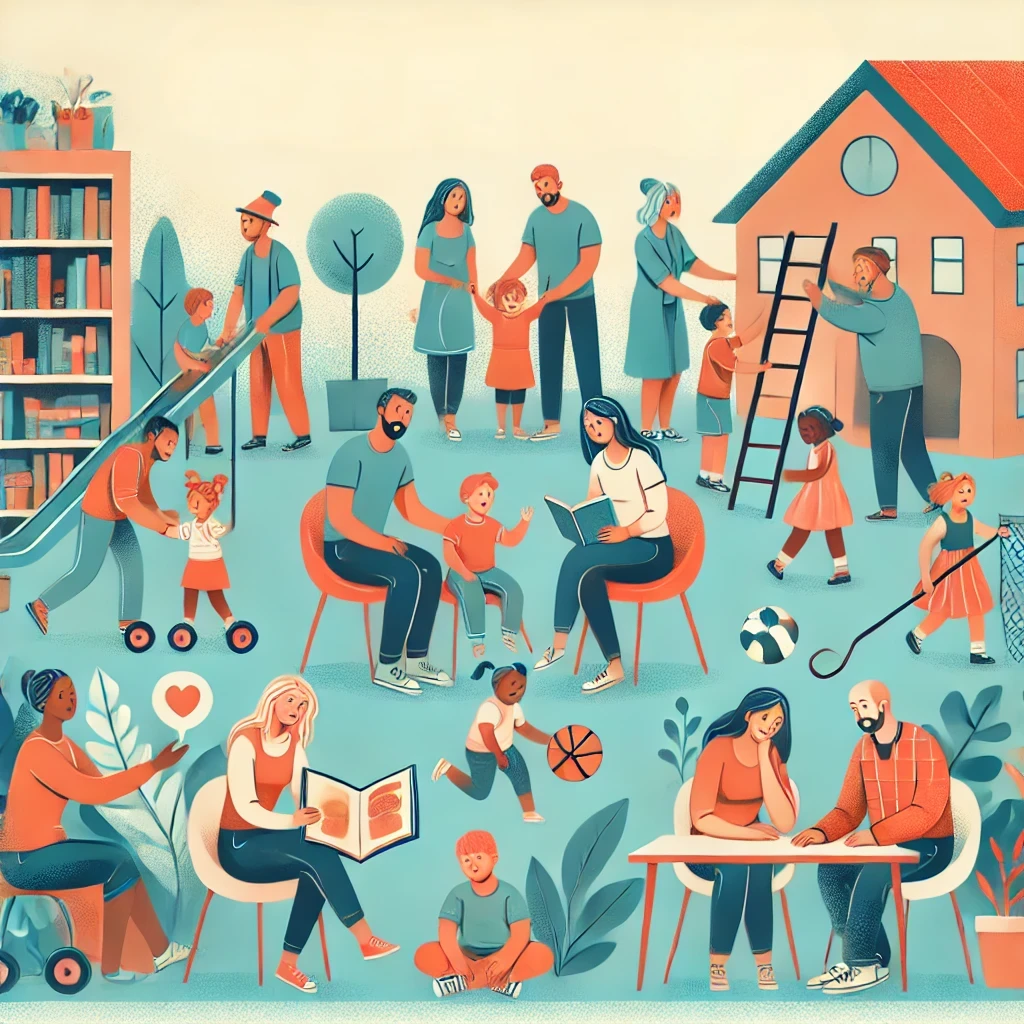
You don’t need to be a parent to make a positive impact on a child’s mental health. Child-free adults can play a crucial role in supporting the emotional well-being of children in their community. From offering mentorship and emotional support to creating safe, nurturing environments, there are many ways to contribute to the healthy development of the next generation. Here’s how child-free adults can help support children’s mental health.
Offering Mentorship and Guidance
One of the most impactful ways that child-free adults can support children is by offering mentorship. Whether through formal programs like Big Brothers Big Sisters or informal relationships with nieces, nephews, or children of friends, mentors provide valuable guidance and support. Positive adult role models outside the family can offer children a fresh perspective, help build their confidence, and guide them through challenges. Mentorship relationships foster emotional security and resilience, helping children navigate difficult situations with greater ease.
Providing Emotional Support
Children benefit from having a network of trusted adults they can turn to for emotional support. Child-free adults can be part of this network by being active listeners and offering compassion. Whether a child is dealing with school-related stress, family challenges, or friendship issues, having an additional adult they trust can provide comfort and perspective. Being present and available for conversations about emotions helps normalize mental health discussions and encourages children to express their feelings.
Creating Safe Spaces for Children
Child-free adults can contribute to a child’s mental well-being by creating safe and supportive environments. This could mean offering a calm space at a family gathering where children feel comfortable, or organizing activities that allow kids to express themselves creatively or emotionally. Whether in social, community, or family settings, child-free adults can help ensure that children feel included, understood, and respected.
Supporting Education and Growth
Child-free adults often have the time and resources to support educational and developmental activities for children. Volunteering at local schools, libraries, or after-school programs is a great way to positively influence a child’s mental health. By encouraging curiosity, creativity, and learning, these adults provide a sense of accomplishment and intellectual stimulation, both of which contribute to positive self-esteem and mental resilience.
Advocating for Mental Health Awareness
Child-free adults can also be advocates for children’s mental health by supporting organizations and initiatives focused on mental well-being. Donating to mental health programs, volunteering at youth centers, or simply promoting mental health awareness can have a ripple effect in the community. Advocacy can help reduce the stigma around mental health, encouraging both children and their families to seek support when needed.
Encouraging Healthy Habits and Hobbies
Another way child-free adults can support children’s mental health is by encouraging healthy habits and hobbies. Whether it’s introducing children to sports, arts, reading, or other activities, these experiences provide children with outlets for expression and stress relief. Encouraging kids to try new hobbies and build routines that promote physical and emotional well-being can help them develop important coping skills.
Building Community and Social Connections
“It takes a village” is more than just a saying—it’s a reality. Child-free adults contribute to building a strong community where children feel safe and valued. By participating in community events, volunteering with children’s programs, or simply being a positive presence in the neighborhood, child-free adults help create a sense of belonging. Children who feel connected to their community are more likely to thrive emotionally and socially.
Conclusion
Child-free adults play a vital role in supporting children’s mental health by offering mentorship, emotional support, and a safe environment to grow. From engaging in educational activities to advocating for mental health awareness, these adults can have a profound and lasting impact on the next generation. It truly takes a village to raise healthy, well-rounded children, and child-free adults are an important part of that village.
Sources
- American Psychological Association (APA)
- Child Mind Institute
- Big Brothers Big Sisters of America